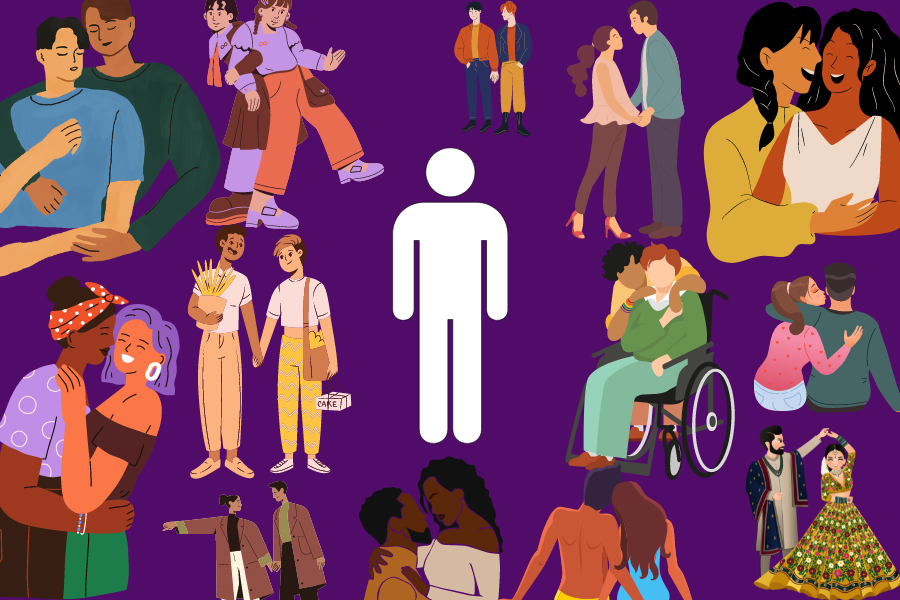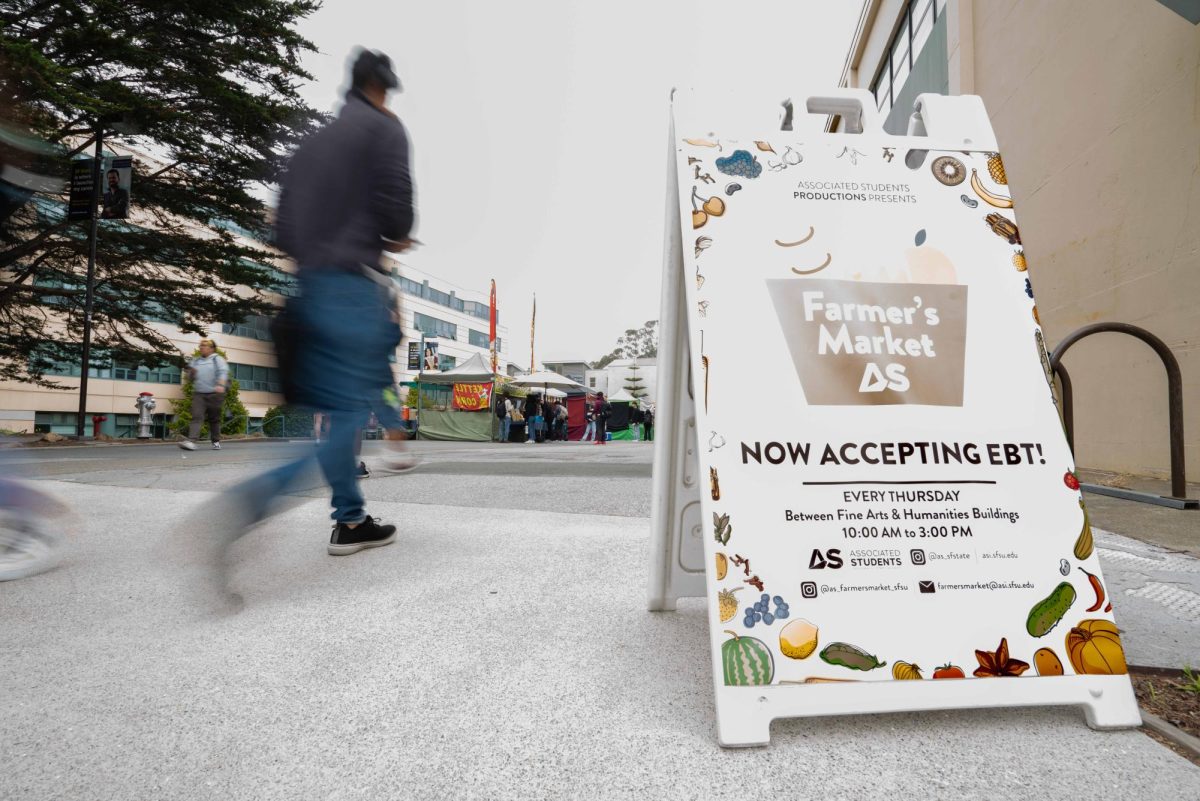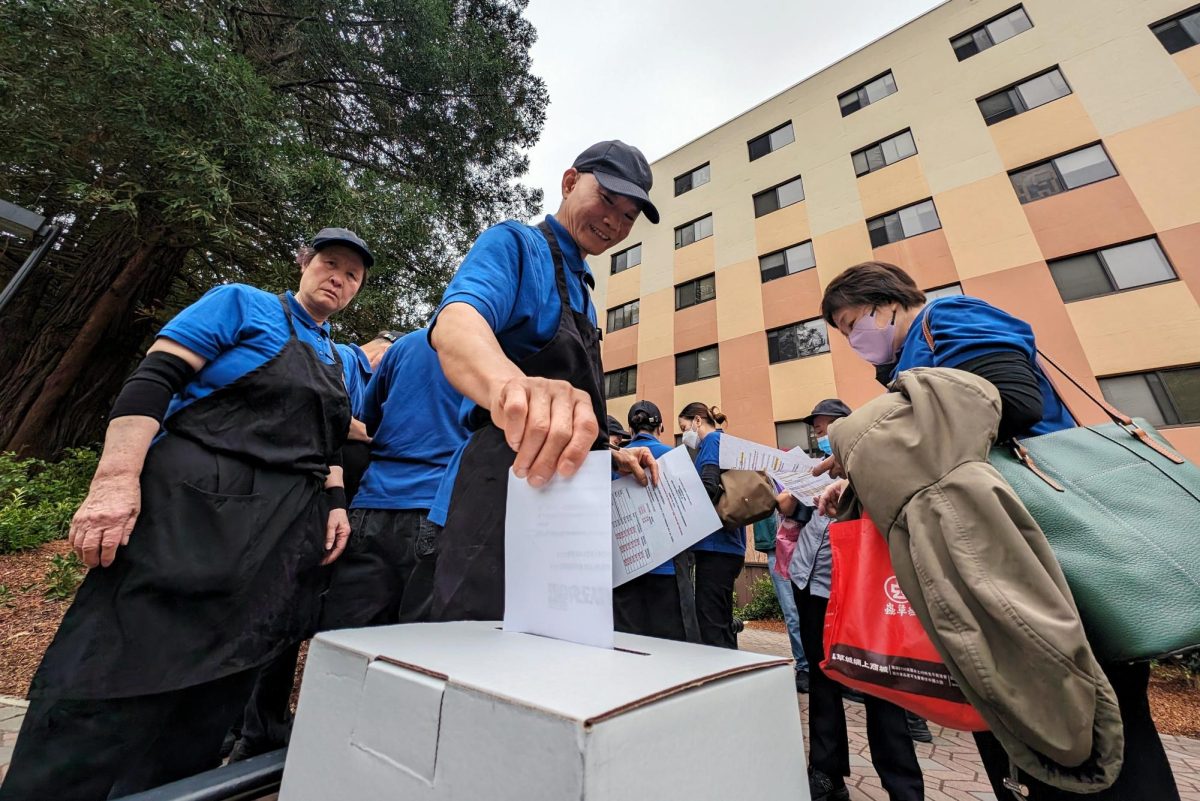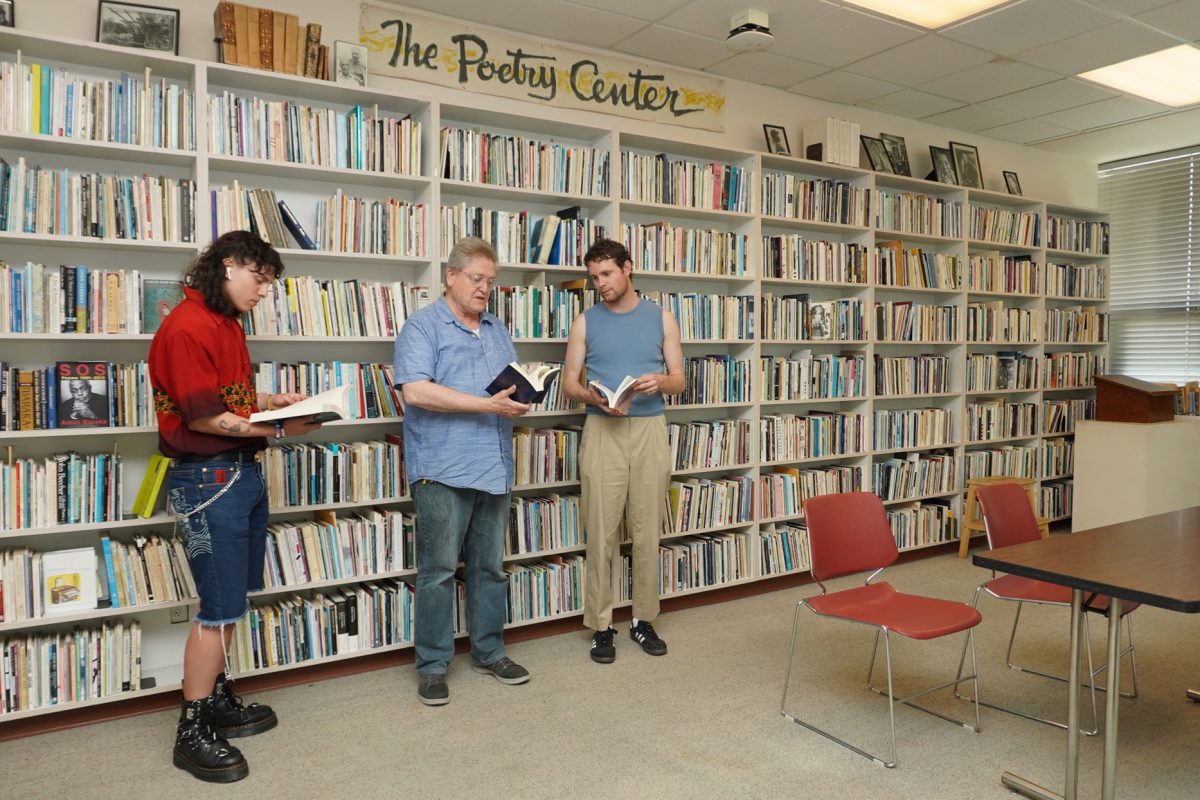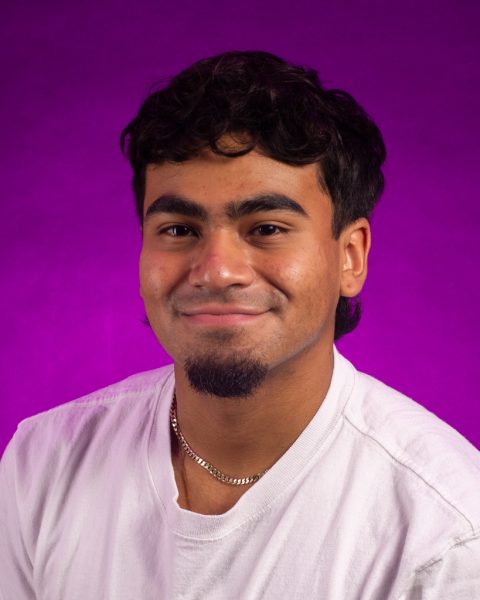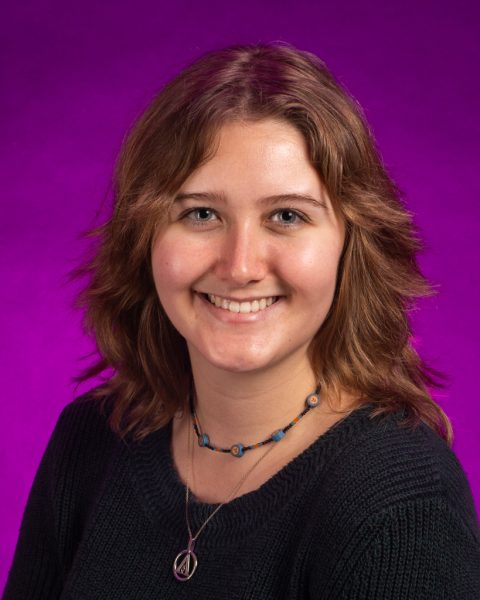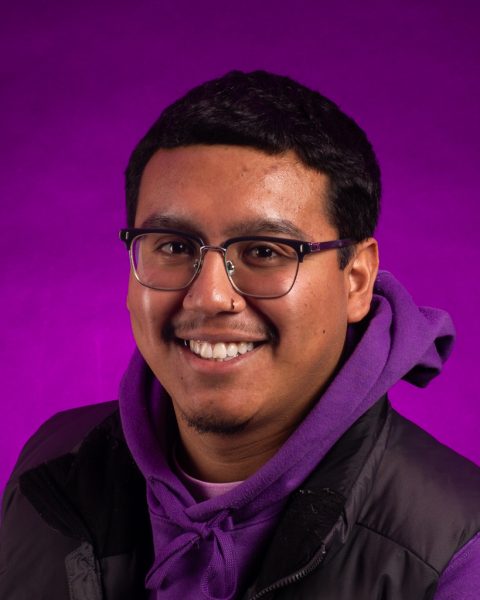The month of February has a knack for amplifying feelings of loneliness, turning it into the dominant emotion for many. For some men, that feeling might linger for the rest of the year.
Among college students, male loneliness has been an issue that has caught the attention of both students and health services workers at San Francisco State University. Despite women being twice as likely as men to be diagnosed with depression, men are more likely than women to mask their emotions. Male loneliness can be both a result and cause of men being hesitant to reach out for help because the issue has often been stigmatized, especially in young college adults. Whether it be bearing the responsibility of adulthood for the first time or living far away from home, college students have reported the highest symptoms of depression and anxiety in the last 15 years, according to a NEA.org study.
Brandon Whiting, 35, is originally from South Carolina but has called San Francisco home for the last decade. Whiting, a political science student, said that moving to San Francisco was one of the best decisions he’d made in his life. However, living across the country also caused feelings of loneliness.
“It’s hard making friends when you’re older, especially when you go to San Francisco State,” Whiting said. “I see women socialize with themselves a lot more than men socialize with each other. That’s one thing I do notice here. You’ll notice a lot more lonely men here than women lonely.”
As a men’s rights activist, Whiting said advocating for men’s rights on campus is difficult.
“[The] mental health aspect is one thing, but there’s a snap judgment that all men are bad. There’s a negative view of men in general, especially in this school. It’s very feminist-leading, so you’re going to be alone if you have any ideas that don’t go against that grain,” Whiting said. “It’s hard to come out as a men’s rights advocate because people instantly think that you’re a misogynist.”
According to Karen Boyce, director of SFSU’s Health Promotion & Wellness Center aims to make the campus a healthier environment for everyone, according HPW is a part of GatorHealth, which is prepaid for every student’s tuition, meaning all services require no extra charge.
Services include student health counseling and psychology services. HPW promotes the idea that being healthy on campus should be easy, whether taking care of physical or mental health. During the spring of 2021, HPW administered the National College Health Assessment Survey on campus, revealing that 52% of male-identifying students reported experiencing loneliness.
“Historically, male students are much less likely to access health and wellbeing resources,” Boyce said. “Loneliness, feeling[s] of isolation, is something we hear a lot from students. That’s one of the things they feel challenged by and is one of the underlying things that’s negatively impacting their mental health.”
Boyce noted that an increasing number of women are seeking resources from HPW. He said that the disparity in men seeking help is not solely due to men themselves but is also influenced by the stigma surrounding men and mental health. She added that many men don’t know how to access mental health services to begin with. In 2023, male-identifying students made up 32% of people who accessed HPW services and workshops, according to Boyce.
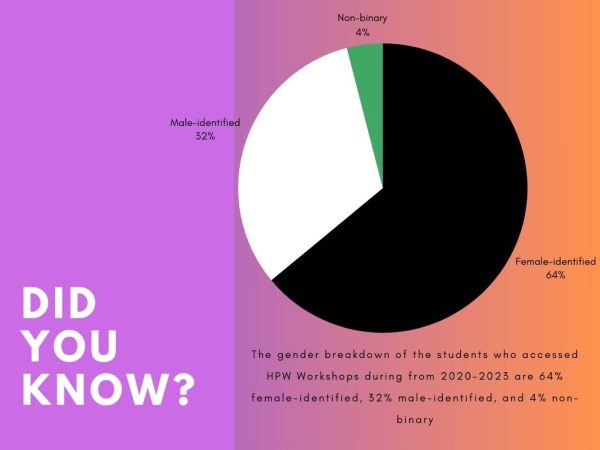
Johnny Fung, a men’s social and emotional wellness student assistant at HPW, makes social media content, newsletters and events focusing on men’s mental health on campus. This semester, Fung went around campus asking male-identifying students why they think that men are not seeking help for their mental health issues. Students told him it was because of pervasive stigmas that surround mental health.
“A lot of young men don’t have the vocabulary to speak about their emotions; it’s a skill like anything you practice. Things like knowing the difference between guilt and shame,” Fung said. “Knowing what communication, trust and boundaries [are]. That’s one of the first things that makes it difficult for men to express their emotions or vulnerability.”
When talking to Latino males on campus, Fung said that students brought up the notion of “machismo” and the expectations men have to shoulder in society. Fung brought up the term to show that loneliness can be a symptom of different issues that can be caused by factors other than mental health. He said that societal and cultural norms have conditioned men to fulfill the role of household leaders and providers without expressing their struggles, as it may be perceived as a sign of weakness.
SFSU’s Counseling & Psychological Services (CAPS) program offers various mental health resources and services, such as individual counseling, crisis intervention and case management on and off campus.
This semester, CAPS has implemented a new service called “Let’s Talk,” an informal meeting between students and counselors, according to the director, Stephen Chen.. Rudy DeAsis, associate director of CAPS, added that CAPS also provides group services that help manage anxiety, mood swings and depression.
Chen said that anxiety, stress and depression are the mental health issues that students grapple with most. “Let’s Talk” focuses on helping students access services and connecting them to other mental health services on or off campus if needed.
“Along with stress is adjustment for first-year college students — kind of adjusting to living on campus or starting college and what comes with that,” DeAsis said. “The stress with roommates, making friends or academic stress. I see stress as really comprehensive and complex.”
DeAsis said that a contributing factor to loneliness for college adults is fear of the unknown. For the first time in their lives, young adults are responsible for themselves, and living far from home can be a process that takes time to figure out. Both directors said that loneliness doesn’t mean someone lacks friends or isn’t around many people.
Chen said the academic stress that young college adults handle also affects feelings of loneliness, as he sees the most people in a semester during midterms and finals weeks.
“Adjusting and leaving your support system, and coming into a brand new environment and having to, in a sense, rebuild that support system,” DeAsis said. “Having to find who you fit in with is a big issue impacting students.”
According to Chen, approximately 66% of people going into CAPS identify as women, while male-identifying students makeup around 33% of the demographic. DeAsis added that these numbers reflect a stigma between men and mental health that’s centered around self-expression, communication and requesting help.
“We [men] weren’t raised to identify and then express our emotions. It’s all about holding it in or masking it,” DeAsis said. “That stigma is still prevalent to this day and that’s a huge impacting factor that impedes males from accessing services.”
CAPS is open to all students needing counseling and psychological services at SFSU. They are located in the Student Services Building, room 205 and are available Monday through Friday from 8 a.m. to 4:45 p.m. Students can call (415) 338-2208 or email [email protected] to schedule an appointment or for assistance.





